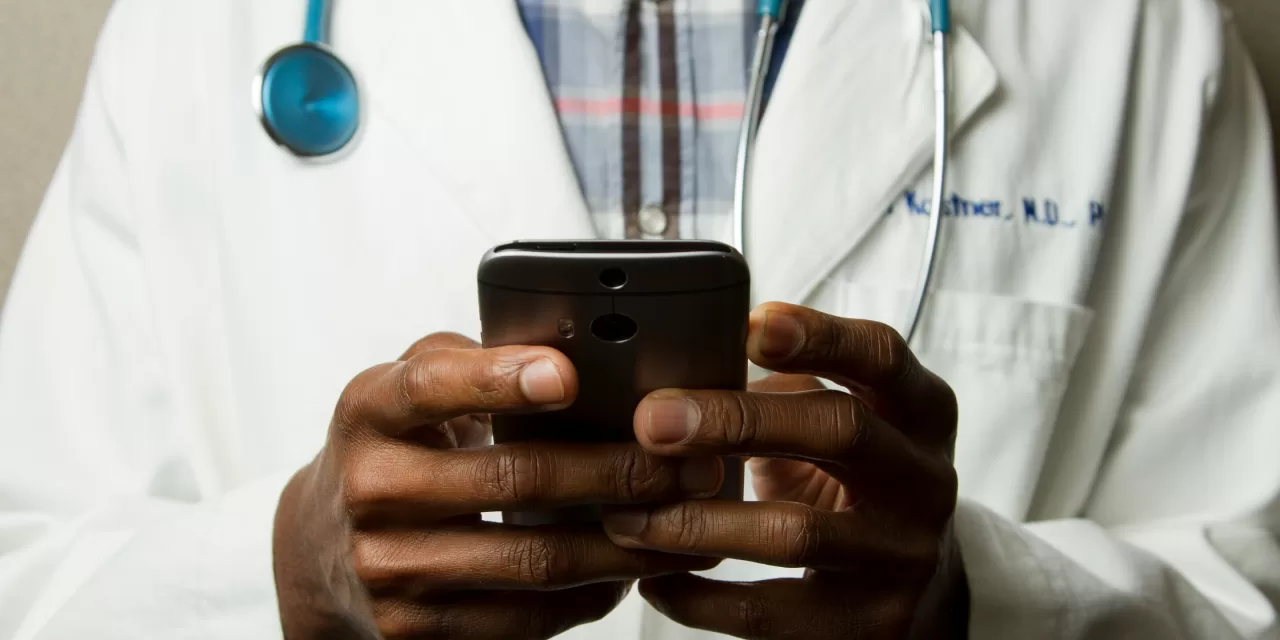A groundbreaking study led by Dr. Tafheem Wani, a lecturer in Digital Health Information Management at La Trobe University, has revealed that clinicians’ personal digital devices, including smartphones, pose significant cybersecurity risks in hospital settings. The study highlights the growing use of personal devices for work purposes, a practice known as “bring your own device” (BYOD), and the associated vulnerabilities in safeguarding sensitive patient information.
Alarming Findings
The research found that many clinicians’ devices contained confidential patient data but often lacked basic security measures such as antivirus software, passcodes, or encryption. This lack of protection places sensitive information at risk of being hacked or inadvertently shared.
“Some clinicians, particularly doctors, work across multiple hospitals and health care settings, making the use of a dedicated work phone impractical in a highly mobile environment,” Dr. Wani explained. “However, using personal devices without adequate security measures significantly increases the risk of patient data breaches.”
The study also uncovered that clinicians frequently store patient data alongside personal data, which could lead to accidental sharing with family or friends. Additionally, hospital networks are vulnerable to malware attacks when unsecured devices connect to them.
Challenges in Implementing Security Measures
Dr. Wani pointed out several barriers to effective BYOD security in hospitals:
- Lack of Policies: Hospitals often do not have specific BYOD policies, leaving clinicians without clear guidelines on securing their devices.
- Complex Security Protocols: Overly complicated security measures can lead clinicians to adopt insecure workarounds, further increasing risks.
- Inadequate Training: Many clinicians have not received specialized training on BYOD security, resulting in unsafe practices.
“We found that patient data security heavily depends on clinicians’ behavior and actions,” Dr. Wani noted. “Without proper training and clear policies, clinicians are left to navigate these risks on their own.”
Recommendations for Hospitals
To address these challenges, Dr. Wani emphasized the need for hospitals to:
- Develop Robust BYOD Policies: Clear guidelines tailored to the unique needs of clinicians should be implemented.
- Provide Specialized Training: Hospitals must offer comprehensive cybersecurity training programs and incentivize clinicians to adopt secure practices.
- Foster a Cybersecurity Culture: Strong collaboration between clinical and IT staff is essential to prioritize both data security and clinical productivity.
“Establishing a strong cybersecurity culture is critical for safeguarding patient data and maintaining trust in health care systems,” Dr. Wani said. He also highlighted the importance of balancing security measures with the need for efficiency in clinical workflows.
A Global Concern
Although the study was conducted in Australian hospitals, Dr. Wani stressed that the problem is widespread. Previous research by his team included literature reviews, surveys, and interviews with IT managers and policymakers across more than 100 Australian hospitals. These studies consistently identified similar BYOD security issues and challenges worldwide.
The findings have been published in the International Journal of Medical Informatics and offer actionable insights to guide hospitals in crafting secure and effective BYOD strategies.
“Addressing the cybersecurity risks posed by personal devices is critical for safeguarding patient data and maintaining trust in health care systems,” Dr. Wani concluded.
Reference
Tafheem Ahmad Wani et al., BYOD security behaviour and preferences among hospital clinicians – A qualitative study, International Journal of Medical Informatics (2024). DOI: 10.1016/j.ijmedinf.2024.105606.












